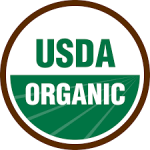CDC Study Misses the Mark
Why organic is still the best choice for reducing dietary risk
 Photo credit: Rick
Photo credit: Rick
The article published in the Journal of Food Protection by Reid et al. examining foodborne disease outbreaks associated with organic foods is misleading. The study examines outbreaks reported to the Centers for Disease Control and Prevention's Foodborne Disease Outbreak Surveillance System that are associated with organic products, but don’t place the few instances of pathogens in the context of the numerous outbreaks from conventional products. Not discussed in detail in this article is the fact that organic provides and extra measure of safety on top of federal standards and the reduced risk of exposure to pesticides and antibiotic resistant bacteria associated with choosing organic.
 The study fails to look at the few instances of outbreaks related to organic products in comparison with the total number of pathogen-related outbreaks in the 41 years of data examined by the researchers. In total, the study found only 18 outbreaks associated with organic between 1973 and 2014 – that is less than one outbreak every 3 years. Additionally, they were only able to confirm USDA organic certification for 11 of the 18 outbreaks, and note that at least three of the outbreaks were definitively from non-certified operations. Had the study included data on the total number of outbreaks reported in the Foodborne Disease Outbreak Surveillance System from conventional products it is likely that the conclusion would have been that outbreaks due to organic products happen much less frequently than their conventional counterparts.
The study fails to look at the few instances of outbreaks related to organic products in comparison with the total number of pathogen-related outbreaks in the 41 years of data examined by the researchers. In total, the study found only 18 outbreaks associated with organic between 1973 and 2014 – that is less than one outbreak every 3 years. Additionally, they were only able to confirm USDA organic certification for 11 of the 18 outbreaks, and note that at least three of the outbreaks were definitively from non-certified operations. Had the study included data on the total number of outbreaks reported in the Foodborne Disease Outbreak Surveillance System from conventional products it is likely that the conclusion would have been that outbreaks due to organic products happen much less frequently than their conventional counterparts.
 There are a multitude of safety regulations imposed on organic growers that they must comply with in addition to federal standards. Organic has never been considered a replacement for federal safety practices – organic standards add an extra layer of safety on top of federal standards. All organic producers must comply with the same local, state and federal safety standards as conventional producers, and no exceptions are given to organic producers or handlers.
There are a multitude of safety regulations imposed on organic growers that they must comply with in addition to federal standards. Organic has never been considered a replacement for federal safety practices – organic standards add an extra layer of safety on top of federal standards. All organic producers must comply with the same local, state and federal safety standards as conventional producers, and no exceptions are given to organic producers or handlers.
The organic requirements are requirements above and beyond the food safety requirements that all producers and handlers must meet. In addition to food safety standards, organic food must meet the strict standards of the USDA National Organic Program, including:
- Organic System Plans – Each certified organic farm must have a plan that describes all aspects of the farm, including measures taken to prevent pathogenic contamination of crops and water.
- Traceability – Certified organic producers and processors must keep extensive records so they can trace their products from the field to point of sale.
- Sanitation – Organic production permits antimicrobial steps such as pasteurization, equipment sanitation, and steam sterilization to lower pathogen contamination. The National List of Allowed and Prohibited Substances also allows the use of critical cleaners and sanitizers such as phosphoric acid, chlorine, hydrogen peroxide, and peracetic acid.
- Manure and Compost – Organic food is more strictly regulated than conventional in terms of use of manure as fertilizer. No raw manure is used in organic systems without an extended waiting period between application and harvest (i.e. 90 and 120 days).
- No Sewage Sludge – The use of sewage sludge is prohibited in organic farming.
- Microbial Balance – Beneficial microbes keep soil in balance, providing good nutrition to crops and keeping pathogens and microbes in check.
- Biodiversity – Creating a more diverse ecosystem by adding hedgerows, vegetative buffers, and diversified cropping systems will improve microbial balance and water filtration, and produce more nutritional food.
- Livestock – Organic regulations do not allow confined cattle feeding operations, considered to be one of the primary sources of E. coli 0157. Organic standards also do not allow routine use of antibiotics, which can lead to antibiotic-resistant strains of E. coli and other foodborne pathogens.
- No Toxic Pesticides – Toxic pesticides are prohibited in organic farming
Additional benefits of organic
 Photo credit: regan 76
Photo credit: regan 76
Research provides overwhelming evidence that avoiding pesticide residues in your diet is critical for reducing health risks, including an innovative study showing that dietary exposure to low-level pesticide residues in a conventional diet can have health consequences, a report from the World Health Organization concluding that the active ingredient in Roundup “probably causes cancer in humans”, and multiple studies about the negative effects of pesticide exposure to children’s health. Multiple studies have shown that choosing organic products can significantly decrease your exposure to pesticides. One recent study showed that even eating organic occasionally can have a beneficial impact on pesticide avoidance.
 Photo credit: Bour3
Photo credit: Bour3
Recent studies have also found that because organic production prohibits the use of antibiotics, it decreases the development of antibiotic resistance. For example, one study found that bacteria on conventional poultry were more resistant to ampicillin, chloramphenicol, doxycycline, ciprofloxacin, gentamicin, and sulfisoxazole, stating that “organic farming practices contribute to decreased dissemination of antibiotic resistance” Including the impact of avoiding antibiotic resistant bacteria in analyses of food safety is critical, because the Center for Disease Control put out a report showing that over 2 million illnesses and 23 thousand deaths are caused by antibiotic resistant bacteria every year, and the World Health Organization declared antibiotic resistant bacteria a global health epidemic.
 Photo Credit: US Department of Agriculture
Photo Credit: US Department of Agriculture
Investigations into preventing foodborne illnesses is important for human health. The organic industry places the highest value on the quality and safety of its food products. Even though organic products are the most highly regulated foods in the United States, the organic sector continues to conduct further research to continually improve organic food. For example, the Organic Center is collaborating with multiple academic and governmental agencies on a multi-million dollar project to develop a risk analysis of on-farm practices associated with persistence of pathogens on organic farms using manure and compost and determine the relationship between soil health and pathogen survival in organically managed produce fields treated with animal manure.
While the organic community encourages improved research into reducing human health risks associated with diet, this study does not add to our knowledge about improving food safety, and there are many other important aspects of organic that support the health of our community.


